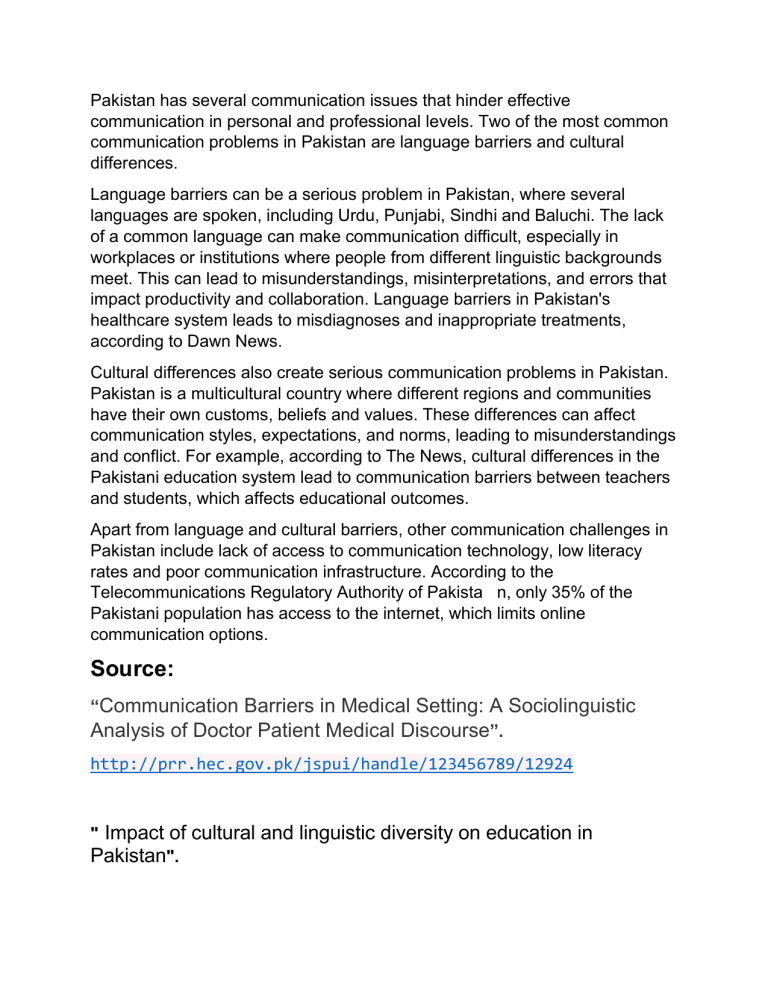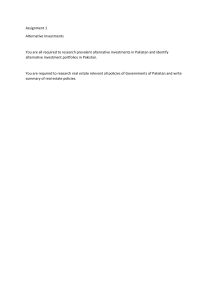
Pakistan has several communication issues that hinder effective communication in personal and professional levels. Two of the most common communication problems in Pakistan are language barriers and cultural differences. Language barriers can be a serious problem in Pakistan, where several languages are spoken, including Urdu, Punjabi, Sindhi and Baluchi. The lack of a common language can make communication difficult, especially in workplaces or institutions where people from different linguistic backgrounds meet. This can lead to misunderstandings, misinterpretations, and errors that impact productivity and collaboration. Language barriers in Pakistan's healthcare system leads to misdiagnoses and inappropriate treatments, according to Dawn News. Cultural differences also create serious communication problems in Pakistan. Pakistan is a multicultural country where different regions and communities have their own customs, beliefs and values. These differences can affect communication styles, expectations, and norms, leading to misunderstandings and conflict. For example, according to The News, cultural differences in the Pakistani education system lead to communication barriers between teachers and students, which affects educational outcomes. Apart from language and cultural barriers, other communication challenges in Pakistan include lack of access to communication technology, low literacy rates and poor communication infrastructure. According to the Telecommunications Regulatory Authority of Pakista n, only 35% of the Pakistani population has access to the internet, which limits online communication options. Source: “Communication Barriers in Medical Setting: A Sociolinguistic Analysis of Doctor Patient Medical Discourse”. http://prr.hec.gov.pk/jspui/handle/123456789/12924 " Impact of cultural and linguistic diversity on education in Pakistan". https://academiamag.com/impact-of-cultural-and-linguisticdiversity-on-education-in-pakistan/



